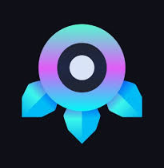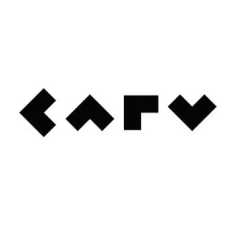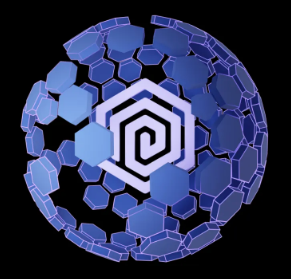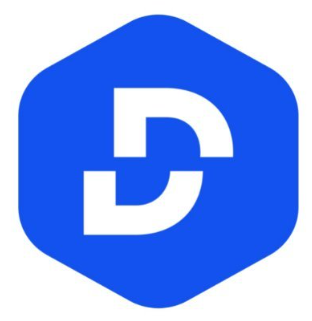
Introduction to Alliance Games
Alliance Games is a Web3 gaming infrastructure platform that combines decentralized technology and AI to provide tools for developers and players, enabling them to create, host, and enhance games in a smarter, more dynamic, and always accessible way.
Alliance Games leverages key technologies such as AI-driven intelligence, cloud computing, and machine learning models to build decentralized solutions with AI at their core. The platform offers three core products—Game AI, Game Cloud, and the Worker Network—to provide players with an immersive experience that is always accessible.
Additionally, Alliance Games has developed an economic system centered around $COA, offering various ecosystem user incentives such as node mining and participation in ecological games, aiming to provide players with real ownership and collaborative creation capabilities.
Team Background and Funding
Founded in 2019, Alliance Games completed two rounds of funding this year, raising a total of $8 million. In January, the company secured $3 million in seed funding, and by the end of October, it raised $5 million in Series A funding, led by Animoca Brands and Asymm Ventures, with participation from Spartan Group, Dialectic, Kyros Ventures, Coin98 Finance, Loi Luu, Sebastien, and other institutions.
The core team members of Alliance Games have rich backgrounds in blockchain and gaming. Its founders, Simon Sorgenfrei and Dennis Kirsch, focus on computer science research in blockchain, while the head of game technology and the game designer have experience in multiple industry and non-industry projects, including Decentraland (Mana), Mattel, and Ubisoft.
Five Key Technologies
In Alliance Games’ view, current Web2 and Web3 online games are typically hosted using centralized solutions by game studios, including game logic and data storage. Once servers stop updating, players lose access to game records and the game itself. The emergence of blockchain, particularly on-chain gaming, provides a new approach by putting game logic and user assets on the blockchain, granting players true ownership. However, on-chain games still face significant developmental limitations and poor user experience.
To address these challenges, Alliance Games integrates AI-driven intelligence, cloud computing, machine learning models, blockchain, and efficient data management to create two solutions: a decentralized infrastructure focused on hosting and data storage services and an AI-enhanced game development system to build a more adaptive gaming ecosystem.
To support this high-performance and scalable ecosystem, the team has adopted five key technologies:
-
Hybrid AI Architecture: Combines edge AI processing for real-time, responsive interaction with cloud AI for large-scale computation, ensuring adaptive gaming that balances performance and scalability.
-
Decentralized Physical Infrastructure Network (DePIN): Establishes a distributed node ecosystem driven by cryptographic consensus (proof of connectivity, proof of computation, proof of data efficiency) to ensure security, transparency, and scalability while supporting a self-sustaining, community-driven network.
-
AI Model and Dataset Management: Manages decentralized AI model deployment and dataset synchronization, enabling continuous learning and consistency across the network while maintaining data integrity.
-
Data and Storage Management: Utilizes DataVault and AssetVault for decentralized, secure storage of player data and in-game assets, improving data availability and reducing dependence on centralized servers.
-
Load Balancing and Data Routing: Optimizes data flow and distributes computational load across nodes, minimizing latency and ensuring a smooth, efficient gaming experience.
Three Core Products
To help developers create AI-driven games at a lower cost and with higher efficiency, as well as incentivize more users to participate in the ecosystem, Alliance Games has developed three core products: Game Cloud, Game AI, and Worker Network.
-
Game Cloud: A decentralized infrastructure solution designed to optimize data flow, manage network performance, and securely store assets. Key components include:
-
AssetVault: A decentralized storage solution designed for managing petabyte-scale game assets, operated by community-run, permissionless data storage nodes. It offers tools to generate zero-knowledge proofs and execute proof verification to ensure data privacy and security.
-
GameFront: A decentralized content delivery network that supports large multiplayer online games and real-time streaming events, with dynamic scalability to handle traffic surges, content optimization, and built-in DDoS protection.
-
NetFlow: A shared bandwidth network solution using a global node network to ensure low-latency game data transmission, featuring smart routing to optimize data paths, elastic scaling, and advanced DDoS protection.
-
Based on the Game Cloud layer, Game AI acts as an advanced intelligent layer, enhancing the overall user gaming experience through its collaborative suite of tools: the large-scale AI model training platform NeuralForge, an easy-to-integrate GameMind AI agent management system, and the AI data repository DataVault.
As for the Worker Network, it is the core of Alliance Games’ decentralized infrastructure, supported by three special types of nodes—edge nodes, lightweight nodes, and micro nodes—that focus on providing computing power, bandwidth, and data processing capabilities.
Edge nodes are multi-functional, providing powerful computation and storage capabilities. Micro nodes aim to facilitate simple user-driven interactions through lightweight interfaces, aiding in refining in-game AI models. Lightweight nodes focus on optimizing network connections by sharing bandwidth resources.
As of now, Alliance Games has launched edge node and micro node mining services, allowing users to contribute local hardware (CPU, GPU, and storage) to earn token rewards such as $WORK and $mcWORK. Over 58,606 devices have supported edge nodes in the first three months of the launch. On the first day of the micro node service launch in early November, over 15,000 users participated. Additionally, the lightweight node service will be launched soon.
Building a Token Economy Centered Around $COA
Alliance Games’ ecosystem is community-driven. To attract more players, developers, and game studios to participate, the Alliance Games team has designed a complex token economy model.
In Alliance Games’ ecosystem, $COA is the core token, with $WORK, $mcWORK, and $ltWORK being reward tokens. $COA is the main governance token, used to coordinate economic incentives for different participants in the ecosystem. Reward tokens are primarily used for node mining rewards, representing different user contributions to the network. Additionally, users can hold Alliance Passes to participate in ecosystem development and receive token incentives, as well as earn Alliance Points through participation in ecosystem games and completing tasks.
Both reward tokens and Alliance Points can be redeemed for $COA during future airdrop events. Here’s a detailed overview of how players can participate in Alliance Games and earn potential rewards:
-
Alliance Pass: Users must hold an Alliance Pass to run nodes and earn reward tokens. The Alliance Pass is essentially an NFT minted on the opBNB Chain or Polygon network, with each pass priced at 9.9 USDT. As of the latest data, over 19,500 passes have been minted on opBNB, and over 14,700 on Polygon.
Benefits of holding the Alliance Pass include:
-
Double Alliance Points
-
Priority participation in special events and game privileges
-
Future airdrop rewards
-
-
Alliance Points: These are the ecosystem experience points (XP) of Alliance Games. Users can earn points by participating in social media tasks and ecosystem games. Additionally, users who invite friends to register through the referral program will both receive 500 Alliance Points.
Alliance Points can be exchanged for $COA tokens during the issuance of $COA in the future.
-
$WORK, $mcWORK, and $ltWORK: Users earn these three types of reward tokens by running different types of nodes, such as edge nodes, micro nodes, and lightweight nodes. These tokens have no fixed supply, and they will be exchanged for $COA at a certain ratio during the $COA issuance.
-
$COA: As the core token of the ecosystem, $COA can be used to mint in-game items, for transaction payments, staking, and network governance. The supply and distribution details of $COA are yet to be disclosed by the team.
Ecosystem Games Overview
With effective solutions and supporting products, Alliance Games has made significant achievements in game application implementation. So far, the team has launched the Beta season of its flagship game Chain of Alliance, and AI games such as Cupid’s Challenge, Midnight Diner, and Entwined Souls have also been launched.
-
Chain of Alliance: A turn-based, team-building role-playing game where players act as governors, controlling heroes to unlock more content and options, influencing the game world. Over 210,000 users have joined Chain of Alliance, generating over 1 million transactions. The team plans to launch the game on the Alliance Games open test network in Q1 2025.
-
Cupid’s Challenge: An interactive dating simulator where users can freely explore romantic relationships with different female characters.
-
Midnight Diner: Players take on the role of a restaurant owner, engaging in interactive storytelling with customers from different backgrounds to unfold various complex storylines.
-
Entwined Souls: A romantic fantasy text adventure game where a city boy and a rural witch swap bodies across time and space, with players making different choices to drive the story forward.
Conclusion
Alliance Games believes that the integration of blockchain and AI technologies can fundamentally reshape the creation, gameplay, and experience of games. The team’s vision is to build a player-driven, dynamic, flexible, and sustainable gaming environment, ensuring continuous game operation while providing users with an immersive, seamless experience.
Currently, Alliance Games has made significant progress in core product development, game application construction, and community building. The team plans to focus on cross-chain support, tool integration, new product development, and community expansion, while refining the token economy to continually promote ecosystem growth and prosperity.
Relevant Navigation


OpenLoop

Gmail

Photon

Overtake

CARV

Gitcoin Passport

